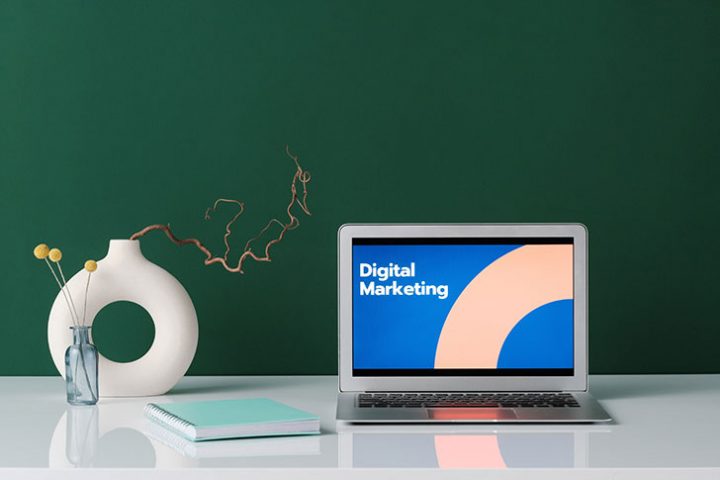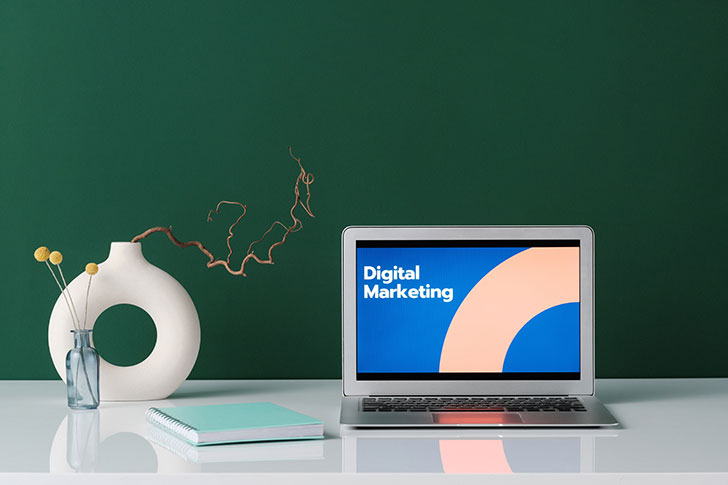Every business must engage in marketing of some sort. It’s a basic business function, and without it, no business would be able to determine what to sell, at what price, to which customers, and so forth. If a business decides to forego its marketing efforts, it may as well shutter its doors and turn out the lights, because driving and delivering revenue – the main point of being in business in the first place – would be next to impossible without engaging in marketing.
This, then, is the same argument for why companies need to be involved in digital marketing as well: simply put, to do so would be detrimental to a business’s capacity to operate. While revenue may continue to flow for a while thanks to more traditional marketing efforts, it would only be a matter of time before a company’s market share would be consumed by more aggressive, more digitally savvy competitors.
For a more broken down exploration of why digital marketing is vital to today’s business landscape, here are the most important reasons you need to engage a digital marketing company in Singapore today.
Your Market is Online
Unless you and the rest of your board of directors have been living under a rock, you’ve probably noticed that a lot of people have turned to the internet for whatever they need. For context: around half of the world’s population, or around 4.6 billion users, are online and using the internet at any given time. Of these, around half, or 2.3 billion, are accessing the net from a mobile device. While COVID-19 is keeping most prudent people locked indoors, this is still an indicator of how widespread internet usage is; assuming the absence of the pandemic, it’s likely that all those users would still be able to access the internet, no matter where they were.
These numbers indicate the ubiquity of the net, but not necessarily its potency as a market, so here it is: as of 2019, the total evaluation of the global e-commerce market was estimated to be US$3.5 trillion, and was expected to exceed US$5.4 trillion by the end of 2021. As it turns out, this expectation is likely a conservative one. The global pandemic has encouraged people to shop online even more than initially expected, and has actually had a positive impact on global online shopping.
Clearly, there is revenue to be collected online as people become more and more comfortable shopping online, a trend that is likely to continue on into the future.
Your Competitors are Already Doing It
If your company has been dragging its feet to make the transition to online marketing, you can be sure that your competitors have not. In all likelihood, they have already taken advantage of their less digitally savvy competitors’ unwillingness or inability to embrace digital marketing and have realigned their marketing budgets to account for spending online. As a result, the total spending worldwide for advertising online has exploded, exceeding US$378 billion in 2020 and tracking to exceed US$455 billion by the end of 2021. In the US alone, digital advertising comprises the largest portion of total advertising spending throughout the country, accounting for US$152 billion of the total US$282 billion spent on advertising in 2020.
The explanations for this widespread use of digital advertising and marketing tactics are varied and multifaceted. These include the almost universal adoption of both smartphones and 4G and 5G connectivity, allowing anyone to be online almost anywhere. Brands, no matter their size, must respond to this new, always-connected consumer, and must shift their focus away from more traditional forms of advertising to account for new user preferences and expectations.
It Can Supplement Your Offline Marketing
While more traditional advertising is currently being outstripped by its more modern counterparts, this does not mean it no longer delivers some value. In fact, digital marketing can support and refine offline marketing initiatives in several ways.
One of these is by delivering immediate user feedback. Digital marketing is different from more traditional forms of marketing in that it’s a two-way communication channel, rather than one-way. Users who interact with a digital ad or a brand’s piece of content can immediately provide feedback on it, whether positive or negative, which will allow brands to refine and improve their own communications strategy. This improves a brand’s advertising initiatives and brings it more in line with what their market would prefer.
As an added bonus, brands who release ads and content that are especially interesting or engaging can benefit from virality that simply isn’t available to more traditional advertising and marketing initiatives. Customers may feel inclined to share a brand’s content via their own social media, effectively doing the brand’s job of promoting its products and services.
Ignoring digital marketing would be a mistake in today’s business landscape. Prudent brands would be quick to embrace the digital revolution, pursue their market, and reallocate their marketing budgets accordingly.






















 10 Best House Cleaning Services in Singapore: 2025 Guide
10 Best House Cleaning Services in Singapore: 2025 Guide  10 Best Maid Agencies in Singapore 2025 for an Easy Helper Find
10 Best Maid Agencies in Singapore 2025 for an Easy Helper Find  10 Best Aircon Services in Singapore: 2025 Guide
10 Best Aircon Services in Singapore: 2025 Guide  10 Best House Movers in Singapore: 2025 Guide
10 Best House Movers in Singapore: 2025 Guide  The 7 Most Romantic Restaurants in Singapore 2025
The 7 Most Romantic Restaurants in Singapore 2025  5 Best Sofa Cleaning Services in Singapore 2025
5 Best Sofa Cleaning Services in Singapore 2025  Illuminate Spring with Blooms across Lendlease malls
Illuminate Spring with Blooms across Lendlease malls  2XU Compression Run 2025 Singapore
2XU Compression Run 2025 Singapore  Solo Travel and Mental Health: Discovering Wellness Through Independence and Adventure
Solo Travel and Mental Health: Discovering Wellness Through Independence and Adventure  5 Ways to Improve Your Business’s Energy Efficiency This Coming 2025
5 Ways to Improve Your Business’s Energy Efficiency This Coming 2025  7 Types of Smart Road Solutions That Help Improve Traffic Efficiency and Safety
7 Types of Smart Road Solutions That Help Improve Traffic Efficiency and Safety  The 5 Best Gelato Shops in Singapore
The 5 Best Gelato Shops in Singapore  5 Best Cake Shops in Singapore for Special Occasions and Everyday
5 Best Cake Shops in Singapore for Special Occasions and Everyday  The 5 Best Healthy Food Cafes in Singapore
The 5 Best Healthy Food Cafes in Singapore  10 Best Places To Propose In Singapore Which Guarantee Her To Say Yes
10 Best Places To Propose In Singapore Which Guarantee Her To Say Yes  5 Exciting Weekend Getaways Away from Singapore
5 Exciting Weekend Getaways Away from Singapore  5 Best Cinemas in Singapore for Blockbusters and More
5 Best Cinemas in Singapore for Blockbusters and More